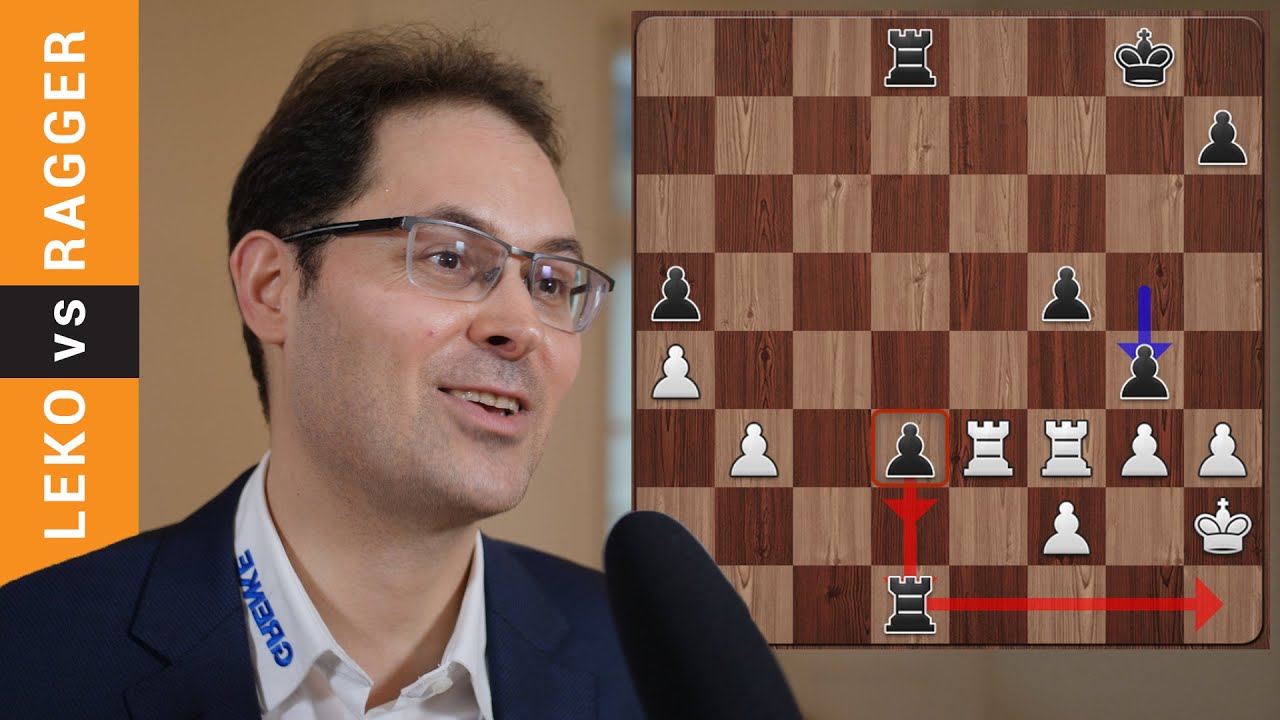In the intricate world of professional chess, where strategic depth meets psychological fortitude, the transition from celebrated player to insightful mentor is a rare and refined art. Few embody this evolution as effectively as Peter Leko, the Hungarian Grandmaster who once stood on the precipice of the World Championship title in 2004. Known for his methodical approach and deep understanding of the game, Leko has seamlessly shifted his focus from the intense rigors of competition to the subtle, yet profoundly impactful, task of nurturing the next generation.
His most prominent protégé is the German sensation, Vincent Keymer. At just 19, Keymer has already carved a significant niche for himself, marked by a string of impressive performances that have not only captivated the chess world but also solidified his position among the top echelons. Leko`s seasoned guidance has been instrumental in this ascent, transforming raw talent into refined mastery.
Keymer`s Breakthrough: Confidence Forged in Fire
Keymer`s recent triumphs speak volumes about his burgeoning confidence and strategic prowess. His dominant victory at the Chennai Masters, secured with a round to spare against a formidable field, was a testament to his burgeoning confidence and strategic prowess. This success followed closely on the heels of his sensational performance at the Weissenhaus Freestyle Chess tournament, where he defeated chess titans like Magnus Carlsen, Fabiano Caruana, and Alireza Firouzja. These victories were not merely statistical achievements; they were psychological breakthroughs.
«The win in the Weissenhaus Freestyle Chess gave him a lot of confidence… He mentioned how Freestyle Chess seemed to `open up` Vincent. He gained so much confidence from beating Magnus Carlsen, Fabiano Caruana, and Alireza Firouzja to win Weissenhaus. It was a sensational run. We`ve talked a lot about how, after this, there`s no reason to fear anyone or any situation. If you can play on equal terms against the very best in Freestyle Chess, without any opening preparation, then that`s a huge psychological breakthrough.»
Leko emphasizes that the Freestyle format, devoid of extensive opening preparation, stripped away any potential reliance on pre-game analysis, forcing Keymer to rely purely on his intuitive understanding and strategic depth. This experience, Leko suggests, was a profound «opening up» for Vincent, proving to him that he could stand toe-to-toe with the very best, unburdened by fear or past inhibitions. It`s a pragmatic realization: if the best can be beaten when everyone starts on a level playing field, then the grand chessboard holds no true boogeymen.
The Young Guard: Inspiration, Not Intimidation
Keymer`s rise occurs amidst an unprecedented surge of young talent in chess. The likes of Gukesh Dommaraju, Praggnanandhaa Rameshbabu, and Nodirbek Abdusattorov have already etched their names into history with remarkable achievements at strikingly young ages. Far from being intimidated, Keymer draws inspiration from their success, viewing it as a tangible blueprint for his own ambitions. As Leko observes, there`s a compelling self-belief brewing in Keymer: «Wait a second, I`m not worse than these guys. If they can succeed, why can`t I?»
This mindset, fueled by tangible proof of what young grandmasters can achieve, is a powerful motivator. It fosters a competitive yet aspirational environment where each breakthrough by one prodigy propels the others forward, creating a dynamic era in chess where youth and ambition are rewriting the rules.
A Mentor`s Reflection: Beyond the Board
Peter Leko himself is no stranger to the pressures of elite chess, having come agonizingly close to the world title. He openly acknowledges his own tendency towards caution during his playing career, a trait that sometimes cost him decisive wins. This self-awareness allows him to appreciate Keymer`s more fighting spirit, guiding it without imposing his own past limitations. It`s a rare quality in a mentor – to recognize and foster strengths that diverge from one`s own established path.
The relationship between Leko and Keymer transcends mere chess coaching. It`s a bond built on mutual respect and shared passion. Their collaborative training camps often extend beyond the chessboard, incorporating activities like cycling, fostering a holistic approach to development that intertwines physical well-being with intellectual pursuit. This personal connection, Leko notes, makes the mentorship «great fun,» transforming the arduous path to mastery into a journey of shared discovery, proving that even in the rigorous world of grandmaster chess, camaraderie can be a powerful catalyst for growth.
The Path Ahead
With Peter Leko`s strategic wisdom guiding him and a newfound psychological resilience, Vincent Keymer is not merely a rising star; he is a testament to the power of dedicated mentorship combined with an unshakeable belief in one`s own capabilities. His journey underscores a fascinating dynamic in modern chess: the symbiosis between experienced masters who distill years of wisdom, and audacious young talents ready to redefine the boundaries of the game. As Keymer continues his ascent, the chess world watches with keen interest, eager to witness the full realization of the potential Leko so clearly sees. The pieces are set, and Keymer is certainly playing to win.

